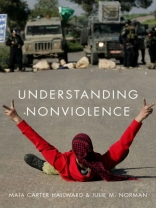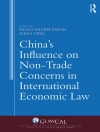The use of nonviolent action is on the rise. From the Occupy Movement to the Arab Spring and mass protests on the streets of Brazil, activists across the world are increasingly using unarmed tactics to challenge oppressive, corrupt and unjust systems. But what exactly do we mean by nonviolence? How is it deployed and to what effect? Do nonviolent campaigns with political motivations differ from those driven by primarily economic concerns? What are the limits and opportunities for activists engaging in nonviolent action today? Is the growing number of nonviolence protests indicative of a new type of twenty-first century struggle or is it simply a passing trend?
Understanding Nonviolence: Contours and Contexts is the first book to offer a comprehensive introduction to nonviolence in theory and practice. Combining insightful analysis of key theoretical debates with fresh perspectives on contemporary and historical case studies, it explores the varied approaches, aims, and trajectories of nonviolent campaigns from Gandhi to the present day. With cutting-edge contributions from leading scholars and practitioners in the field, this accessible and lively book will be essential reading for activists, students and teachers of contentious politics, international security, and peace and conflict studies.
Зміст
List of Contributors
Boxes and Figures
Acknowledgements
Part 1: Foundations
1 Introduction
Maia Carter Hallward and Julie M. Norman
2 Understanding Nonviolence
Maia Carter Hallward and Julie M. Norman
Part 2: Contours
3 Spiritual and Religious Approaches to Nonviolence
Mohammed Abu-Nimer
4 Tactical and Strategic Approaches to Nonviolence
Howard Clark
5 Questions of Strategy
Stephen Zunes
6 New Media and Advocacy
Srdja Popovic and Marcella Alvarez
Part 3: Contexts
7 Civil Rights and Domestic Policy
Patrick Coy and Amanda Clark
8 Revolutions and Democratic Transitions
Maciej Bartkowski
9 Rural Movements and Economic Policy
Kurt Schock
10 Transnational Movements and Global Civil Society
Peter (Jay) Smith
11 Future Directions
Maia Carter Hallward and Julie M. Norman
Notes
References
Index
Про автора
Maia Carter Hallward is Associate Professor of Middle East Politics
Julie M. Norman is Lecturer of Political Science at Mc Gill University












